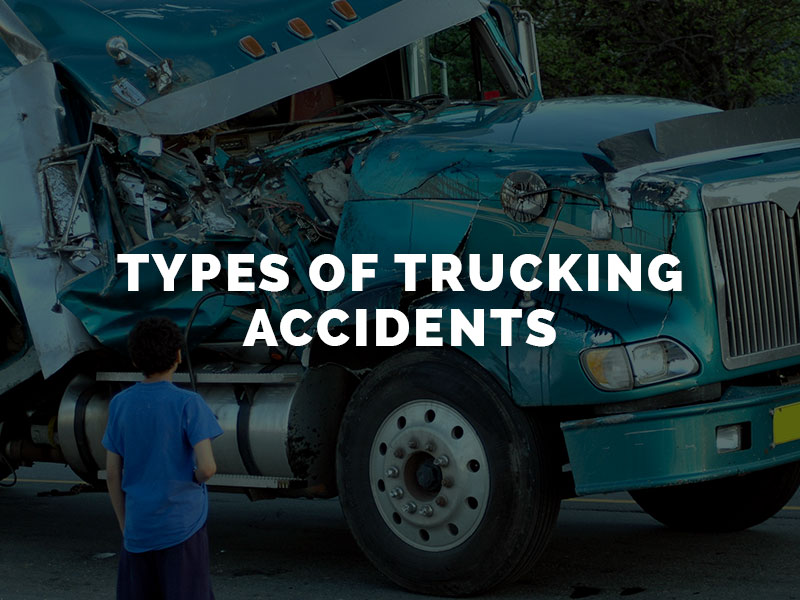The commercial trucking industry can pose significant threats to others in terms of traffic accidents. Negligent, careless and irresponsible truck drivers could cause serious and deadly collisions in Colorado. In 2017, the Federal Motor Carrier Safety Administration (FMCSA) reported 4,237 fatal crashes and 344,000 injury crashes involving large trucks in the U.S.
The catastrophic nature of trucking accidents leads to a disproportionate amount of injuries and fatalities compared to other motor vehicle accidents – mainly impacting the occupants of passenger vehicles. Different truck driver and company mistakes could cause various types of trucking accidents.

A jackknife accident could be deadly for the truck driver and others involved in the wreck. When a big rig jackknifes, it folds in on itself at an angle – making it impossible for the truck driver to safely steer or stop the truck. When the trailer of a truck swings away from the cab, the truck could roll over or flip. It could also slide into other vehicles and cause a pile-up accident.
Jackknife often results from the truck driver using the wrong braking technique when rolling downhill. It is a trucking company’s responsibility to train its drivers to brake properly in dangerous situations, to prevent jackknife accidents. Inadequate brake maintenance could also contribute to a jackknife collision by causing brake failure.
A lost load refers to the cargo in an open or closed trailer breaking free of its securement and dropping into the road during transport. Lost cargo could bounce and strike vehicles behind the truck. It could smash through windshields and cause fatal personal injuries, or cause issues such as tire blowouts and related accidents.
A trucking company and its cargo loaders must follow the FMCSA’s cargo securement rules exactly to prevent lost load accidents. These rules require different types of beds for different cargo, hazardous cargo securement, special straps, weight distribution specifications and much more. Skipping FMCSA load requirements could result in a lost load accident.
Big rigs take much wider turns than standard passenger vehicles. The cab of the truck must swing out to the left to make a right turn, for example. A wide-turn accident can occur when a turning truck crashes into a nearby passenger vehicle with its cab or bed. All motorists should maintain a safe distance from a turning 18-wheeler. The truck driver should carefully check his or her surroundings, make sure it is safe and signal the intent to turn before completing the maneuver.
Underride accidents often kill the occupants of involved passenger vehicles. In an underride accident, the passenger vehicle collides with the back or side of a commercial truck – potentially ending up crushed beneath its trailer. Common injuries in underride truck accidents include head and brain injuries, decapitation, broken bones and catastrophic spinal cord injuries. An underride accident can occur if the trucking company fails to adhere to federal rear impact guard requirements or lets its reflective tape fall into disrepair, impeding the trailer’s visibility.
An override accident can occur when a commercial truck rear-ends a smaller vehicle. In a rear-end trucking accident, sometimes the truck can propel the smaller car forward and cause additional collisions. In other cases, the truck could roll over the smaller car and cause an override accident. This could crush, injure and kill the occupants of the passenger vehicle. A truck driver could prevent override accidents by leaving an adequate following distance, not speeding, paying attention to the road and properly applying the brakes.
After any type of trucking accident in Colorado, victims may be able to file injury claims against the trucking company. Truck companies will be legally responsible for accidents their negligent or reckless drivers cause, as well as those that stem from inadequate trucking maintenance. A lawsuit against the company could end in financial compensation for economic and noneconomic damages. To learn more about your options for legal recourse after a collision, speak with a Denver trucking accident lawyer.